-
An Overview of LASIK Eye Surgery
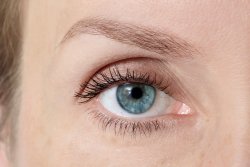 If you wear glasses or contact lenses, LASIK eye surgery could fix your vision issues to free you from the burden of corrective lenses. Keep reading for an overview of the procedure and how it can help you break away from the restraints of a life with glasses or contacts.
If you wear glasses or contact lenses, LASIK eye surgery could fix your vision issues to free you from the burden of corrective lenses. Keep reading for an overview of the procedure and how it can help you break away from the restraints of a life with glasses or contacts.It Treats Refractive Errors
Most people who need corrective lenses have refractive issues that prevent light from reaching the cornea in the proper way. Refractive errors include nearsightedness, or myopia, farsightedness or hyperopia, presbyopia, and astigmatism. If you suffer from any of these issues, you should get a LASIK consultation near Chicago to see if this form of eye laser surgery can improve your vision.
It Uses a Laser to Reshape the Cornea
If you and your ophthalmologist decide that this is the right procedure for you, he or she will use a revolutionary laser to cut a small flap on the cornea. The ophthalmologist then sculpts the corneal tissue with a laser so light hits it the right way. Once this step is complete, the doctor can replace the flap. The LASIK eye surgery is a fast procedure that effectively corrects your refractive issues so you can have better vision.
It Has a Quick Recovery Time
Most patients heal quickly after their LASIK procedures. Your ophthalmologist will send you home with a prescription for eye drops that prevent your eyes from getting infected. You might experience hazy vision for a day or so, but you should enjoy improved vision within a few days after the procedure. After a follow-up visit with your ophthalmologist, you should schedule visits every six months to ensure your vision is doing well.
If you are interested in improving your refractive issues, you should schedule an appointment for an eye exam. After a thorough examination, the eye doctor can tell you if this surgery is the right treatment option for your vision issues or if you need to go with another option.
-
The Benefits of LASIK
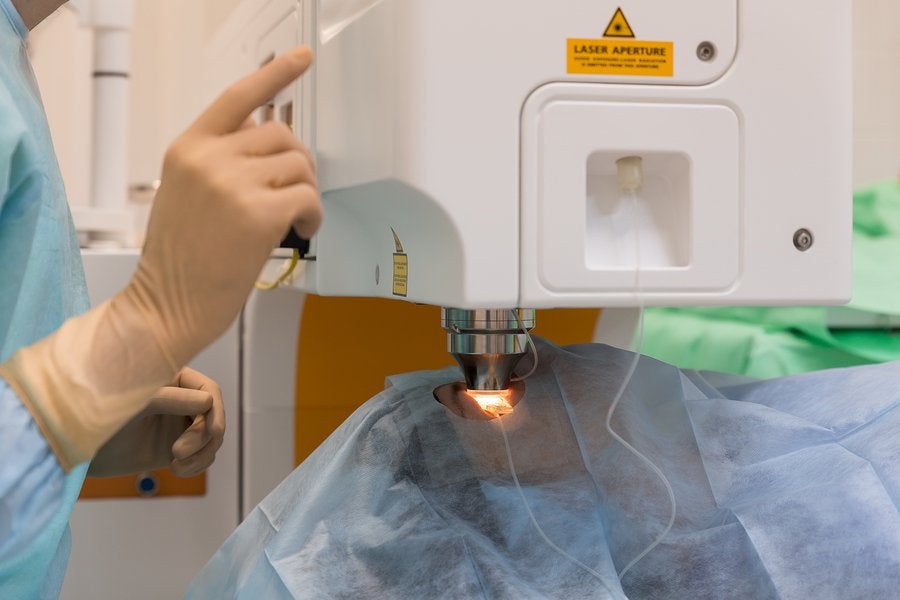
LASIK is still the most common laser eye surgery in the United States. The procedure can be completed with a laser or a blade and creates a thin flap in the cornea. The cornea is reshaped to correct the refractive error and improve vision.
Laser eye surgery was first available in the 1980s and by 2001 LASIK was the most common elective surgery in the world. LASIK is considered a third option in addition to wearing eyeglasses or contact lenses.
There are several benefits of having LASIK performed, and the most obvious is having your vision improved without having to wear glasses or contacts. After LASIK surgery, your vision will improve immediately, and it may continue to improve for a year.
LASIK eye surgery can be performed in both eyes on the same day and you’ll likely be able to get back to work in just a day or two. LASIK is a viable option for about 80% of the adult population. If you’re 18 or older, have a common vision problem such as far or nearsightedness or astigmatism, lead an active lifestyle, are in general good health, and cannot or would prefer not to wear glasses or contacts, LASIK could be right for you.
More Benefits of LASIK
- The safety of LASIK eye surgery has increased over the years
- Typically causes little to no pain
- Vision is corrected almost immediately or at least by the day after the procedure
- Quick recovery
- Adjustments can be made for years
- Most patients will no longer need corrective eyewear
- You’ll actually save money over the years on frames and lenses or contacts and contact solution as well as ophthalmologist appointments
- Improved self-confidence
- Can participate in activities such as swimming or surfing without worrying about eyewear
- Reduced allergy symptoms compared to wearing contacts
To schedule an appointment with Gerstein Eye Institute, call 773-596-9545.
-
Getting Lasik Surgery? How to Prepare
Getting Lasik Surgery? How to Prepare
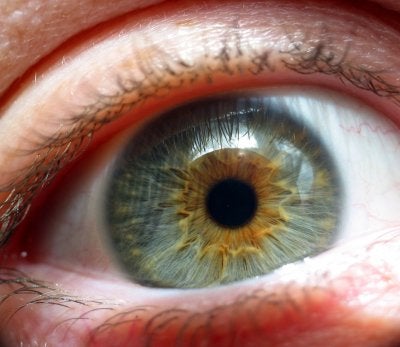
Prepping for any kind of surgery involves a number of steps, and Lasik surgery is no exception. In order to maximize the effectiveness of the procedure and make sure it is done correctly, we at Gerstein Eye Institute in Chicago ask that our patients follow some simple instructions we provide prior to surgery. You’ll get a full rundown on these when you talk with our team, but here are the basics, for quick and easy reference. (Naturally, if there are any specific additions to this you need to follow, your physician will let you know. Your personalized instructions will always take precedence over the ones shared here.)
Contact lens use. Prior to Lasik surgery, you’ll need to stop wearing your contacts for a period of time. How long this time frame depends in part on what type of contact lenses you wear. Hard contact wearers will probably need to cease wearing them four to eight weeks before the procedure; soft contact wearers can usually wear them for up to a week or two prior to the surgery. Please make sure you get specifics from an ophthalmologist on your timeline.
Keep things clean and simple. Just before surgery, you’ll want to minimize any exposure to irritants and make sure your eye and face area is clean and free of makeup or lotions. Take a pass on perfumes, hairspray, and anything else that can potentially get into the eye. Also, try to wear a shirt that doesn’t pill or shed to avoid anything getting into the eye prior to or during the procedure.
Food and drink. Typically you can eat and drink normally prior to Lasik surgery, but there are a few exceptions. We’ll talk to you about this with you in more detail when you meet with the doctor.
Arrange for a ride. You will not be able to drive after this procedure, so be sure to line up a ride home for afterward. You’ll also need someone to take you to the facility. Lasik surgery is not a long procedure, so the wait time shouldn’t be too significant. We’ll give you an idea of how long you’ll be in when we discuss your specific surgery.
Ask questions! Any good ophthalmologist will encourage any and all questions about Lasik surgery. We take time to explain to our patients what goes on before, during, and afterward, but if they have any additional concerns, we’re here to address them. Keeping a list of things you’d like to ask can be helpful, but you can bring questions up at any time. It’s important for you to feel comfortable about the process, and confident you know what is going on every step of the way.
If there is anything you are wondering about that hasn’t been addressed here, or if you’d like to learn more about Lasik surgery in the Chicago area, call Gerstein Eye Institute today. We’re here to help!
Call today to find out if Lasik surgery is right for you!
-
What to Consider When Choosing Your IOLs
Millions of Americans suffer from poor eyesight due to cataracts, but many will enjoy restored vision after undergoing surgery for intraocular lenses or IOLs. If you’re planning to see an ophthalmologist for intraocular implants in Chicago , then keep reading to learn what you should consider when selecting the right IOLs for you.
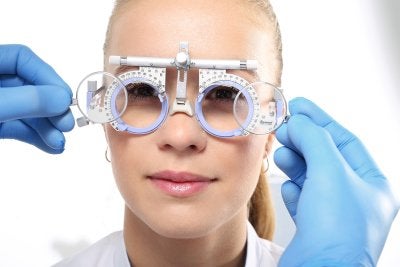
Insurance Coverage
There are several types of IOLs, and not all are covered by insurance. However, the cost of the most traditional option, which is a monofocal lens, is covered by most insurance companies and Medicare. For this reason, if the cost of your IOLs will affect your decision, then this option may be best for you. Monofocal lenses are made to provide patients with the best possible corrected vision at near, far, or intermediate distances.
Device Usage
If you spend a significant amount of time using a computer, tablet, or smart phone, then your ophthalmologist may recommend monofocal intraocular lenses that are set to provide you with monovision. In this situation, one lens is designed to provide near vision and the other one distance vision. However, if you want results that provide you crisp vision, then a monovision approach may not be for you.
Treatment Goals
If you’re hoping to eliminate the need for glasses by undergoing cataract surgery, then your doctor may recommend multifocal lenses. These are a newer variety of IOLs that may be able to correct both distance and near vision for the patient, as well as reduce or eliminate the need for eyeglasses. These IOLs are quite expensive and are rarely completely covered by insurance.
Astigmatism Level
Toric IOLs are intraocular lenses that provide the wearer with added correction for astigmatism. Commonly, people who have moderate to advanced astigmatism prefer toric IOLs, but these may not be fully covered by insurance.
Driving Habits
If it’s important for you to be able to drive at night, then consider that multifocal lenses can have side effects like decreased contrast sensitivity, glare, and halos around lights. If you regularly drive at night, then monofocal IOLs may be the better choice for you.
-
How to Tell if LASIK is Right For You
If you’re tired of wearing eyeglasses or contact lenses and are considering another form of vision correction, you may be wondering if you should visit an ophthalmologist for LASIK surgery in Chicago . LASIK is an incredibly safe and effective method of eye surgery, and has high success rates for vision correction. An ophthalmologist at an optical center near you can provide a LASIK consultation to determine if you are a good candidate for LASIK eye surgery.
Watch this video for some helpful information about how LASIK vision correction is performed. Dr. Alan Wagner, an experienced ophthalmologist, discusses some of the ways that you can tell if LASIK surgery is the right form of vision correction for you.
-
Tips for Recovering from LASIK
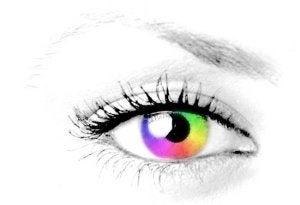 If your eye doctor or ophthalmologist recommends LASIK eye surgery near Chicago , you may have a lot of questions about the procedure and the recovery period. Your recovery will be much shorter and less stressful if you follow the advice of your eye doctor. Here are some tips on how to help yourself recover more quickly from LASIK surgery.
If your eye doctor or ophthalmologist recommends LASIK eye surgery near Chicago , you may have a lot of questions about the procedure and the recovery period. Your recovery will be much shorter and less stressful if you follow the advice of your eye doctor. Here are some tips on how to help yourself recover more quickly from LASIK surgery.Give Yourself a Break
Give your eyes time to rest throughout the day. Don’t use them for taxing activities or to focus on small objects for prolonged periods of time. Take a few days off of school or work, and let yourself slowly ease back into the routine of your daily life. If you notice that your eyes feel strained or stressed, or if you develop a headache, lie down and close your eyes for a period of time. You can also try lying down in a dim room.
Protect Your Eyes
Take baths instead of showers to prevent water, shampoo, and soap from dripping into your eyes and irritating them. Do not rub your eyes with your hands or a towel. Do not play sports or participate in any water activities for at least a month after surgery. Your vision and depth perception have not completely adjusted, and you don’t want to risk getting hit in the eyes or sustaining an eye injury. Wear protective eyewear for at least 2 weeks post-surgery, including while you sleep or if you shower. Wear dark sunglasses both indoors and outdoors to protect your eyes from the sun and harsh lights.
Follow Your Doctor’s Advice
Visit your eye doctor regularly post-surgery, particularly 24 hours after the procedure. Follow his advice strictly. If he prescribes you medicated eye drops, use them as directed. They can help your eyes heal faster, and will make them feel less dry and irritated. Your eye doctor may suggest that you avoid wearing makeup or using facial lotions and creams. They can easily get in your eyes and cause irritation and infection.
-
Why You Should Consider LASIK
 Laser in situ keratomileusis (LASIK) is a type of eye surgery that corrects refractive errors, such as nearsightedness and farsightedness. It can also be used to correct astigmatism and presbyopia. LASIK is the most popular type of refractive surgery in the U.S., with good reason. It offers freedom from corrective lenses, it has an exceptional safety record, and it only requires a minimal recovery period. To find out if having laser eye surgery near Chicago might be a good choice for you, consult an ophthalmologist.
Laser in situ keratomileusis (LASIK) is a type of eye surgery that corrects refractive errors, such as nearsightedness and farsightedness. It can also be used to correct astigmatism and presbyopia. LASIK is the most popular type of refractive surgery in the U.S., with good reason. It offers freedom from corrective lenses, it has an exceptional safety record, and it only requires a minimal recovery period. To find out if having laser eye surgery near Chicago might be a good choice for you, consult an ophthalmologist.Permanent Vision Correction
One of the most common reasons why people have LASIK eye surgery is that it reduces or eliminates their dependence on eyeglasses and contact lenses. LASIK can correct your vision by creating a very small flap in the cornea with a precisely focused laser. Then, the excimer laser reshapes the cornea. A properly shaped cornea can focus light on the retina precisely, which eliminates refractive errors such as nearsightedness and farsightedness. The excimer laser is capable of reshaping the living tissue of your corneal cells without causing damage such as scar tissue.
Superior Patient Safety
If you’ve been delaying talking to an eye doctor about LASIK surgery because of safety concerns, you can rest assured that the low rate of complications makes LASIK surgery one of the safest procedures available. In fact, LASIK surgery may actually help protect your vision. Since you won’t need to put in contact lenses every day, you’ll have a lower risk of eye infections.
Fast Procedure
Another reason to consider having LASIK is that it won’t take up too much of your time. After your consultation with the ophthalmologist to determine if you’re a good candidate, the procedure itself takes less than 30 minutes—and much of that time is spent on preparations. The laser takes less than a minute per eye to correct refractive errors.
Minimal Recovery
Immediately after having LASIK surgery, it’s advisable to rest for several hours with your eyes closed. You can take a nap while wearing plastic shields to protect your eyes. Patients typically rest for a day or two, after which they can return to most activities. However, it’s important to protect the eyes from irritants for a while. Compared to most surgical procedures, the recovery for LASIK is quite minimal.
-
A Look at the LASIK Procedure
 Laser-assisted in situ keratomileusis (LASIK) is a highly popular and effective way of correcting vision problems while attaining freedom from dependence on eyeglasses and contact lenses. During your LASIK consultation in Chicago , your LASIK surgeon can walk you through the procedure and explain the technology he or she will use. There have been numerous advances in laser eye surgery technology, which have made the procedure safer, faster, and more effective.
Laser-assisted in situ keratomileusis (LASIK) is a highly popular and effective way of correcting vision problems while attaining freedom from dependence on eyeglasses and contact lenses. During your LASIK consultation in Chicago , your LASIK surgeon can walk you through the procedure and explain the technology he or she will use. There have been numerous advances in laser eye surgery technology, which have made the procedure safer, faster, and more effective.Identifying Ideal Candidates
Many people are good candidates for LASIK eye surgery; however, only your ophthalmologist can determine if it’s right for you. You may be a good candidate if you have refractive errors, which are nearsightedness, farsightedness, and astigmatism. The LASIK procedure corrects these vision problems by reshaping the cornea, which allows the eye to more effectively focus rays of light on the retina.
Understanding the Procedure
Before going ahead with the LASIK procedure, your ophthalmologist will make sure you understand what’s involved. First, the ophthalmologist will administer a topical anesthetic to the eyes to numb them. Then, he or she will place an eyelid holder between the eyelids. This prevents you from blinking during the procedure. A suction ring placed on the eye prevents the eye from moving, and lifts and flattens the cornea. Although this procedure is painless, you may feel some pressure at this point. Additionally, your vision may become dim. This is normal. Then, the ophthalmologist uses a special laser to create a flap on the cornea , which allows the laser to shape the corneal tissue. The flap is sealed back in place without stitches. The entire procedure takes only a few minutes per eye.
Recovering from the Procedure
After the LASIK procedure, you should have someone drive you home. Plan to spend the remainder of the day resting quietly at home. It’s critical to avoid rubbing your eyes because this can dislodge the corneal flap. To protect your corneas, your ophthalmologist will give you an eye shield to wear over each treated eye. You’ll also receive instructions on applying eye drops to relieve any dryness and facilitate healing.
-
What to Expect from LASIK
 Laser-assisted in situ keratomileusis (LASIK) is a popular and effective method of vision correction. If you decide to have LASIK near Chicago , you can look forward to freedom from contact lenses and eyeglasses. The procedure involves reshaping the cornea to correct refractive errors. Before deciding to have this procedure, schedule a LASIK consultation with your ophthalmologist to ensure the procedure is right for you.
Laser-assisted in situ keratomileusis (LASIK) is a popular and effective method of vision correction. If you decide to have LASIK near Chicago , you can look forward to freedom from contact lenses and eyeglasses. The procedure involves reshaping the cornea to correct refractive errors. Before deciding to have this procedure, schedule a LASIK consultation with your ophthalmologist to ensure the procedure is right for you.Preparation
Before having LASIK, you’ll undergo an eye exam at an optical center. Your eye doctor will evaluate whether you’re a good candidate for corrective surgery. If you wear a type of contact lens that may change the shape of your corneas, it’s important to stop wearing them for a few weeks before your eye exam and to only wear eyeglasses. Failure to do so may result in improper vision correction. Along with having an eye exam, you’ll talk to your ophthalmologist about your medical history, including any past and current eye conditions. You’ll need to disclose your allergies and any medications or supplements you’re taking. The day before you’re scheduled to have LASIK, avoid using any creams, lotions, or other products on your face because these can increase your risk of infection. Additionally, arrange to have someone else drive you to and from your appointment.
Procedure
The LASIK surgery itself takes very little time. First, the ophthalmologist will apply eye drops to numb your eye. The area around your eye will be thoroughly cleansed. Then, if your eye doctor has invested in the most advanced technology for vision correction, a corneal flap will be created with a laser. Otherwise, a mechanical blade called a microkeratome will be used. Then, a laser is used to reshape the cornea. Once this is completed, the corneal flap will be repositioned.
Recovery
Immediately after the LASIK procedure, your eye doctor will place an eye shield over your eye. It’s critical to wear the eye shield for as long as your doctor recommends, since rubbing your eye or otherwise exposing it to pressure can dislodge the corneal flap. You can expect to remain home resting for a few days after the procedure. You’ll return to the optical center for a follow-up appointment within the first one to two days, and for additional follow-up appointments during the subsequent six months.
-
How LASIK Can Change Your Life
 Refractive errors make it difficult or impossible to complete daily tasks without the help of eyeglasses or contact lenses. LASIK eye surgery can fix these issues and allow you to see clearly without the help of corrective lenses. Keep reading to find out how it can change your life:
Refractive errors make it difficult or impossible to complete daily tasks without the help of eyeglasses or contact lenses. LASIK eye surgery can fix these issues and allow you to see clearly without the help of corrective lenses. Keep reading to find out how it can change your life:LASIK can be used to treat nearsightedness, farsightedness, and astigmatism. The procedure is safe and simple and only takes a few minutes to complete. You need someone to accompany you to your appointment so they can drive you home safely, but you should notice extreme vision improvements as soon as the surgery is complete.
With the help of your eye doctor in Chicago, you do not have to suffer with bad vision anymore. After LASIK eye surgery, you do not have to waste time putting on your glasses or chancing your contact lenses in order to see. You can start living your life without vision restraints holding you back.
